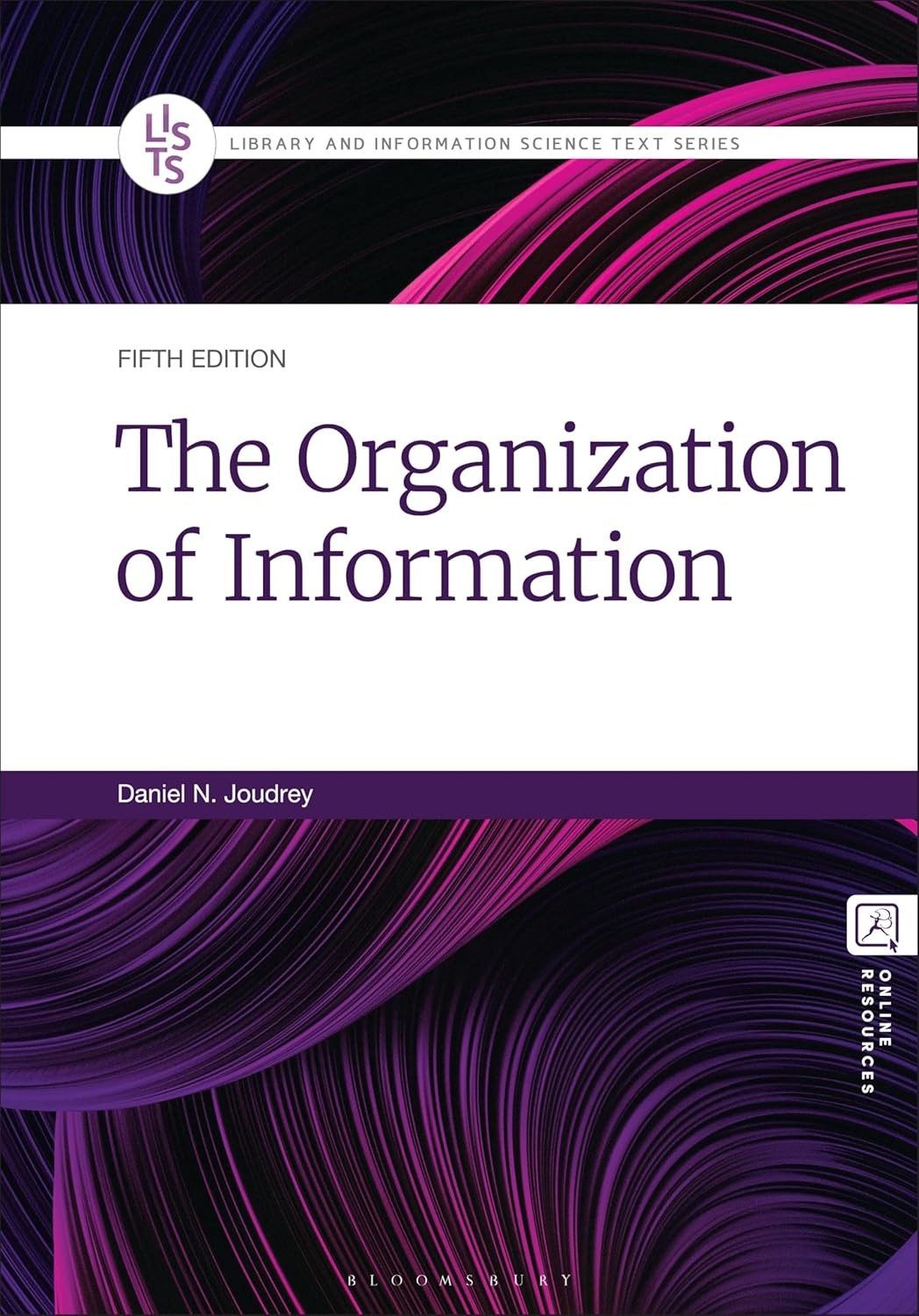Instructor

Instructor: Professor Daniel N. Joudrey
E-mail: joudrey[at] simmons [dot] edu
Class Times
Office Hours
Course Description
The phenomena, activities, and issues surrounding the organization of information in service of users and user communities. Topics include resource types and formats, information service institutions, markup, descriptive metadata, content standards, subject analysis and classification, and the information life cycle. Required course.
Prerequisites: None
Audience (level, environment/setting): beginning level; all settings
Assessed in the course:
1. Apply professional standards, tools, and best practices in the information field and across specialized areas.
2. Communicate effectively across different audiences.
5. Demonstrate the technological skills required to help information professionals and organizations achieve their goals.
Students are also exposed to:
7. Be guided by professional ethics and values.
Course Learning Outcomes
A. Understand the role of information organization in library and information science (LIS).
B. Demonstrate knowledge of the core concepts and principles of information organization.
C. Understand the relationship between information organization concepts and information discovery.
D. Select appropriate approaches to organizing information in different types of environments.
E. Recognize and use information organization standards and tools.
F. Use the vocabulary commonly associated with information organization.
G. Effectively interpret metadata records.
Course Structure
- lectures
- lab sessions
- in-class exercises
- readings
- discussions
- discussion board postings
- homework assignments
Textbook

Required: Daniel N. Joudrey, The Organization of Information, 5th ed. (New York: Bloomsbury-Libraries Unlimited, 2025).
The textbook is available from the publisher, the Simmons University bookstore, Amazon, and other online retailers. An e-book version is available through the publisher and Amazon. Copies are available at the Beatley Library on the Boston campus and in the Greenfield Community College Library at the SLIS West campus.
Grading Scale
| Letter | Meaning | Percent |
|---|---|---|
| A | Excellent Performance | 94–100% |
| A- | Very Good Performance | 90–93% |
| B+ | Good Performance | 87–89% |
| B | Satisfactory Performance | 84–86% |
| B- | Marginal Performance | 80–83% |
| C+ | Unsatisfactory Performance | 77–79% |
| C | 74–76% | |
| C- | 70–73% | |
| D+ | 67–69% | |
| D | 64–66% | |
| D- | 60–63% | |
| F | Failing Performance | Below 60% |
Course Outline
- Unit 1: Introduction to Information Organization in Different Environments
- Unit 2: Retrieval Tools and Systems
- Unit 3: Encoding
- Unit 4: Introduction to Metadata
- Unit 5: Conceptual Models, Description, and Access
- Unit 6: Authority Control
- Unit 7: Aboutness & Subject Analysis
- Unit 8: Vocabulary Control
- Unit 9: Classification & Arrangement